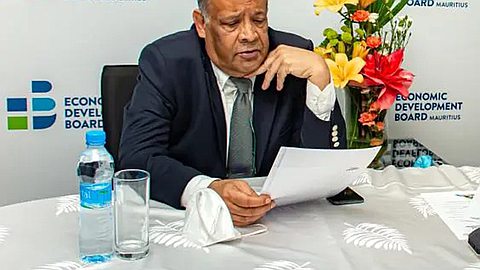Indian Investment Rule Change Opens Market to Hedge Funds

A new class of investor is being introduced by the Securities and Exchange Board of India (Sebi). The move opens the market to foreign investors and is expected to be particularly useful for hedge funds wanting to exploit the market.
The rules will place fewer restrictions on qualified foreign investors (QFIs) than the current category of foreign institutional investors (FIIs) under which single investors or entities have to register in order to be able to invest into the Indian market.
The finance ministry has announced the changes will come into effect on January 15.
Under the QFI regime foreign investors, probably including hedge funds, will have access to the Indian equity market through Indian mutual funds.
The change was initially introduced in the Indian government’s February 2011 budget. “It has been decided to permit Sebi-registered mutual funds to accept subscriptions from foreign investors who meet the KYC [know your customer] standards for equity schemes. This would enable Indian mutual funds to have direct access to foreign investors and widen the class of foreign investors in Indian market,” according to an August 2011 circular sent by Sebi.
The reason for change in policy, many believe, is the withdrawal of investors from India last year due to bearish sentiment on the stock market and the falling value of the rupee. “In 2011 versus 2010 there was a significant drop in foreign investment into India,” says Craig Fulton, head of the Mauritius office at law firm Conyers Dill and Pearman.
“India is still very reliant on foreign investment for foreign currency reserves if nothing else. I think they have realised it has become almost too difficult to invest into India,” he adds.
Many hedge funds have set up in Mauritius in order to invest into India. Most popular with hedge funds are countries that have information-sharing agreements in place with Sebi. This includes Singapore.
Until the new Indian rules are put in place, hedge funds need to obtain FII status. This classification comes with certain restrictions, such as having a minimum of 20 investors with no single investor owning more than a 49% share.
The requirements for QFIs will be much less onerous. SKP Accountancy Services in Mumbai defines a QFI as any person that is not a non-resident Indian or Sebi-registered FII/sub account and is a resident of a country that is compliant with the Financial Action Task Force standards and a signatory to the International Organization of Securities Commission’s (Iosco’s) multilateral memorandum of understanding.
This will open the market to smaller hedge funds as they will no longer have to wait to reach a critical mass before investing in India, according to Mahesh Doorgakant, deputy managing director, Apex Fund Services (Mauritius).
Despite the fact it will now be much easier for hedge funds to invest into India, it is still expected they choose to go via Mauritius.
Mauritius has become a significant player in the global investment industry over recent years, thanks mainly to a government that aggressively pursued double-taxation treaties and a regulator keen to make sure the terms of those treaties are met. The extensive tax treaty network is a plus for hedge funds, particularly those aimed at India and Africa.
“People invest into India via Mauritius for tax reasons. I can see [the rule change] as only being a good thing for Mauritius in the sense that if it makes it easier to invest into India, [hedge funds] will do so but they will continue to do so via Mauritius for tax reasons,” says Conyers’ Fulton.
Another consideration is how hedge funds invest through Mauritius. Fulton says many have domiciled their funds in the Cayman Islands and then set up an investment holding company in Mauritius in order to invest into India. But new rules being considered by Sebi and the Indian parliament could impose taxes on these companies.
The rules, set to be introduced on May 1, 2012, will include anti-avoidance measures “which effectively provide that if an investment is made into India by a foreign entity and it appears that the foreign entity has been put into place for the purpose of avoiding tax in India, then they can look through that entity and levy the tax as if that entity didn’t exist,” explains Fulton.
The advice he gives to hedge funds seeking to invest in India is to “set up a proper Mauritius fund and then invest into India. Then the purpose for your foreign entity isn’t purely tax driven. Your purpose it that you needed a well regulated, recognised fund jurisdiction which has appropriate fund legislation in which to form an entity to pool investment funds from international sources and then invest in India or wherever else.”
He says there has already been an increase in funds domiciling in Mauritius because of the anticipated changes and he expects more.




